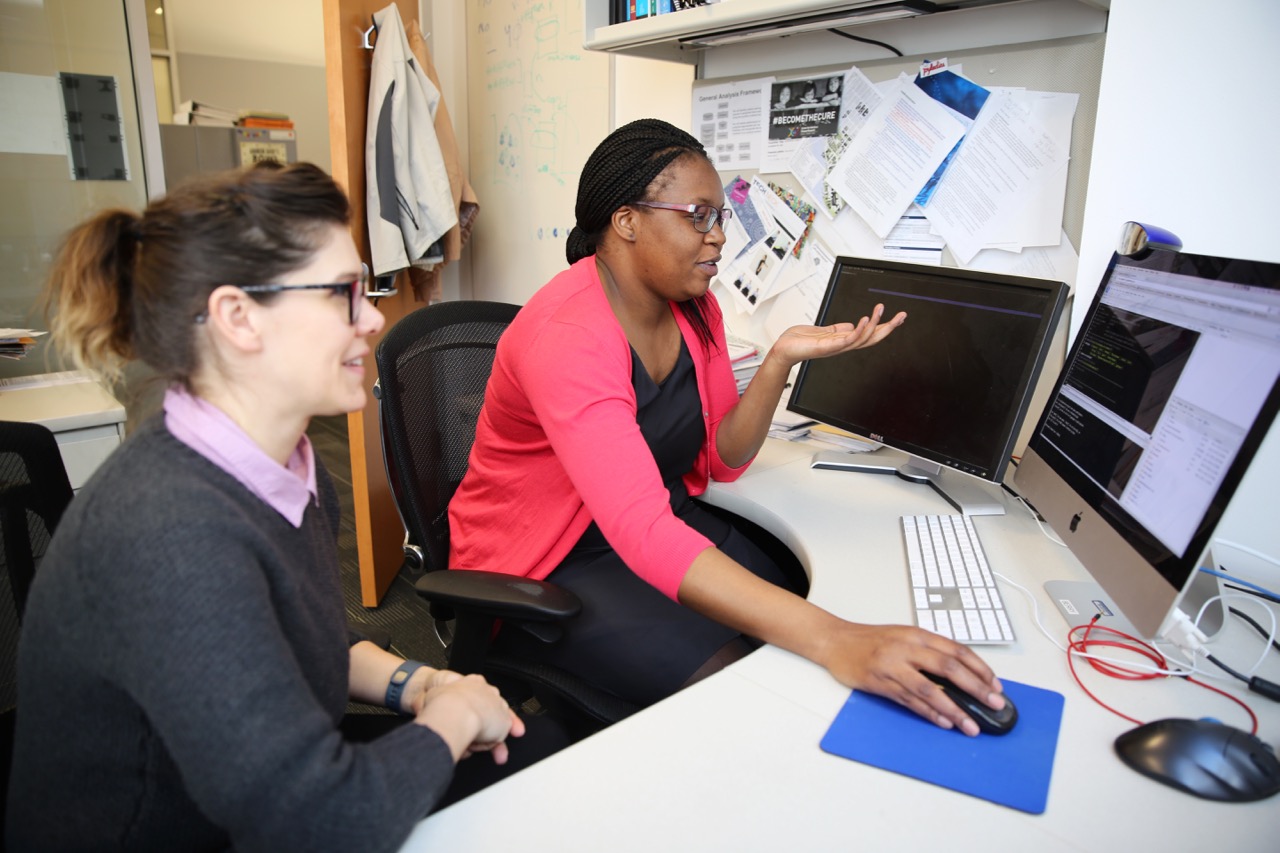In the News: Basketball and Biology
 isbscience.org/news/2016/05/20/b/
isbscience.org/news/2016/05/20/b/
Congratulations to Dr. Nyasha Chambwe on being featured in the May 20 issue of Puget Sound Business Journal’s “People in Research” column. The profile reveals Dr. Chambwe’s path to ISB, starting with a full-ride scholarship to Jackson State University. She has been working on a study on pre-term birth and soon will be moving to projects related to glioblastoma and leukemia.
Photo above: Dr. Nyasha Chambwe, a postdoctoral fellow in the Shmulevich Lab at Institute for Systems Biology, discusses some data analysis with colleague Summer Elasady. Photo by Hsiao-Ching Chou.





